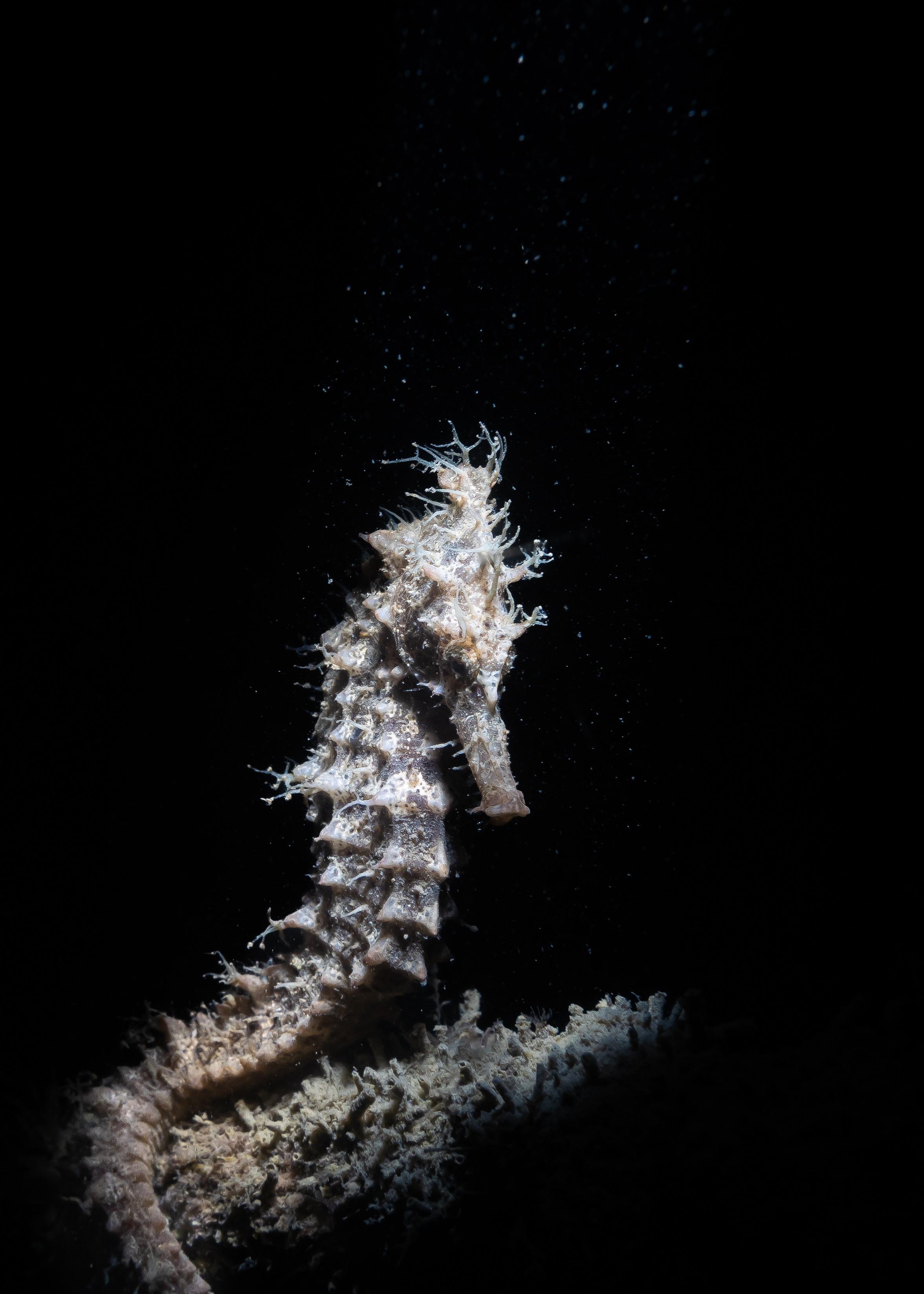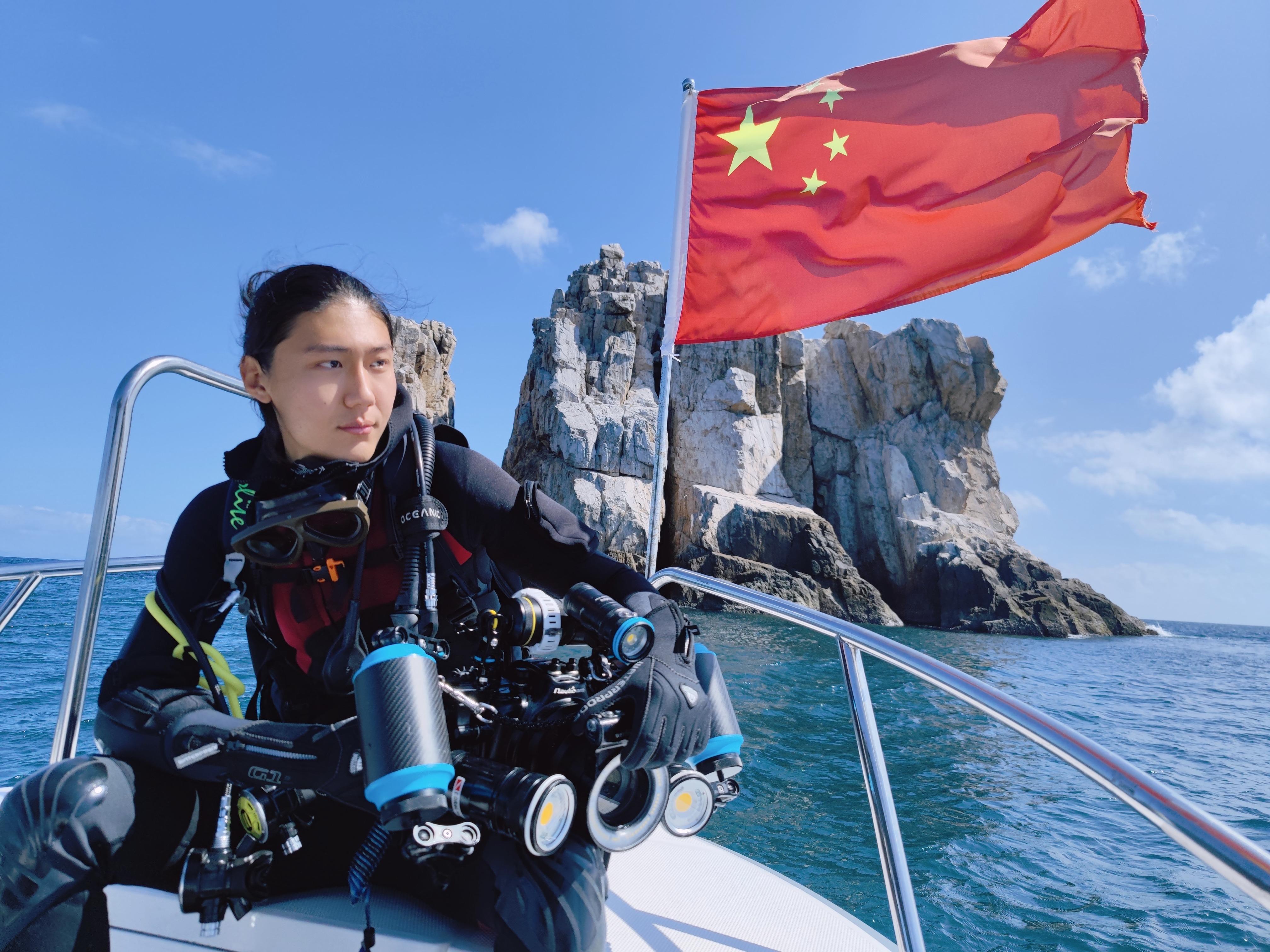An online program on young people's career choices spotlights a coral conservationist, Xing Wen reports.
 Majestic coral reef is one of the images taken by Xu Yitang. (PHOTO PROVIDED TO CHINA DAILY)
Majestic coral reef is one of the images taken by Xu Yitang. (PHOTO PROVIDED TO CHINA DAILY)
In 2014, a sophomore student at the National Academy of Chinese Theatre Arts went with friends for a birthday celebration to Beijing Zoo.
Little did he know that a chance encounter at the aquarium there would ignite a lifelong passion. As Xu Yitang gazed upon clusters of vibrantly hued corals of intricate shapes basking in the glow of the tank's light, a sense of wonder washed over him. Lost in the beauty and mystery of the creatures, he spent the entire afternoon in front of it.
We don’t want to approach different perspectives on youth with an authoritative attitude or lecture the younger generation.
Wang Ning, chief director of online program Burning Youth
Fast-forward to today, Xu, a Beijing native, has relocated to the tropical island of South China's Hainan province, where he serves as a coral conservationist for a Sanya-based tropical biological laboratory affiliated to the Chinese Academy of Sciences.
Each day, he spends several hours diving deep under the waves to observe and document the growth and development of the creatures that captured his heart all those years ago.
Xu, who goes by the moniker "coral man", is actively engaged on such social media platforms as Sina Weibo, where he regularly shares visually stunning photos and entertaining videos of corals. He aims to encourage individuals to take action in protecting coral reefs and the oceans as a whole from the destructive impact of climate change and human activities.
For Xu, who had been studying Peking Opera since childhood, becoming a coral conservationist was an unexpected turn of events.
 A prancing sea horse is one of the images taken by Xu Yitang. (PHOTO PROVIDED TO CHINA DAILY)
A prancing sea horse is one of the images taken by Xu Yitang. (PHOTO PROVIDED TO CHINA DAILY)
After he first saw corals at the aquarium, he began to frequent the local market to learn about coral farming from merchants who sell ornamental plants, fish and corals. He also searched for information on relevant forums online. Before long, he had set up a small fish tank at home and started cultivating a coral.
"The coral organism is quite fragile and has extremely high requirements for water quality," recalls Xu. "When I started growing coral, its state was not good."
As Xu gained knowledge about coral, including how to regulate factors like water temperature, pH levels and trace element concentrations during the cultivation process, his coral gradually started to flourish. As he delved deeper into the creature, he learned that coral reefs are known as "tropical rainforests" and "underwater gardens "of the ocean, providing a home for a quarter of all marine life.
 A captivating sea slug is one of the images taken by Xu Yitang. (PHOTO PROVIDED TO CHINA DAILY)
A captivating sea slug is one of the images taken by Xu Yitang. (PHOTO PROVIDED TO CHINA DAILY)
Unfortunately, with the strengthening of the greenhouse effect, rising sea temperatures have led to coral bleaching and decay. A coral reef's beautiful colors come from the symbiotic algae zooxanthellae that provide more than 90 percent of the energy through photosynthesis. Coral bleaching occurs when coral expels the algae and dies due to the lack of nutrients.
"The clusters of dead coral covered with algae look just like a forest after a big fire, and all is ruin," he says.
Xu felt an increasing sense of urgency and responsibility to protect them. After graduation, he seized the opportunity to become a coral conservationist and officially joined the CAS research team in Hainan.
In the laboratory, he would film educational videos of the artificial coral breeding system to explain the relationship between coral polyps and reefs. His goal was to raise awareness and knowledge about corals, so that people can learn how to protect them effectively.
"Understanding the species is the first step toward effective conservation," he says.
 Xu, originally from Beijing, has relocated to Hainan to be a professional conservationist and he and his colleague often dive to monitor corals. (PHOTO PROVIDED TO CHINA DAILY)
Xu, originally from Beijing, has relocated to Hainan to be a professional conservationist and he and his colleague often dive to monitor corals. (PHOTO PROVIDED TO CHINA DAILY)
He also learned diving and underwater photography to get a closer look at corals for research purposes.
While pursuing his passion to protect corals, he met his life partner, Liu Xiwen, through their shared hobby of diving in Hainan.
"Unlike many young people who care about their outfit and appearance, he is solely focused on protecting corals," says Liu about Xu. "Despite his skin peeling from spending long hours in the seawater, his attitude is different from what I've seen in most young people in Beijing, and it's attractive to me."
The couple have been invited to share their stories in the recently premiered online program Burning Youth that aims to use documentary shorts and in-depth studio interviews to present the inspiring stories of young Chinese people from various walks of life.
Apart from Xu, its first episode, which was released on May 4, also spotlights young panda keepers and bomb-disposal experts. The program aims to showcase less well-known professions and the diverse lifestyles of young people. Eventually, 21 stories were selected to make up eight episodes.
 Xu, originally from Beijing, has relocated to Hainan to be a professional conservationist and he and his colleague often dive to monitor corals. (PHOTO PROVIDED TO CHINA DAILY)
Xu, originally from Beijing, has relocated to Hainan to be a professional conservationist and he and his colleague often dive to monitor corals. (PHOTO PROVIDED TO CHINA DAILY)
The program invites young guests to visit each protagonist and experience their daily lives together, documenting their stories through short films. These protagonists would also be invited to the studio to share how they decided on career paths and discuss the obstacles and difficulties they have faced.
"There are different colors and choices in youth," says Wang Ning, the program's chief director.
"We don't want to approach different perspectives on youth with an authoritative attitude or lecture the younger generation. Instead, we want to recognize and embrace every unique shade of youth."
Yin Hong, a professor with the School of Journalism and Communication at Tsinghua University, comments that the program utilizes relatively unfamiliar subjects to evoke audience's emotional resonance, showing ordinary young people pursuing valuable things.
"The content can convey positive energy and mainstream values."
Contact the writer at xingwen@chinadaily.com.cn


